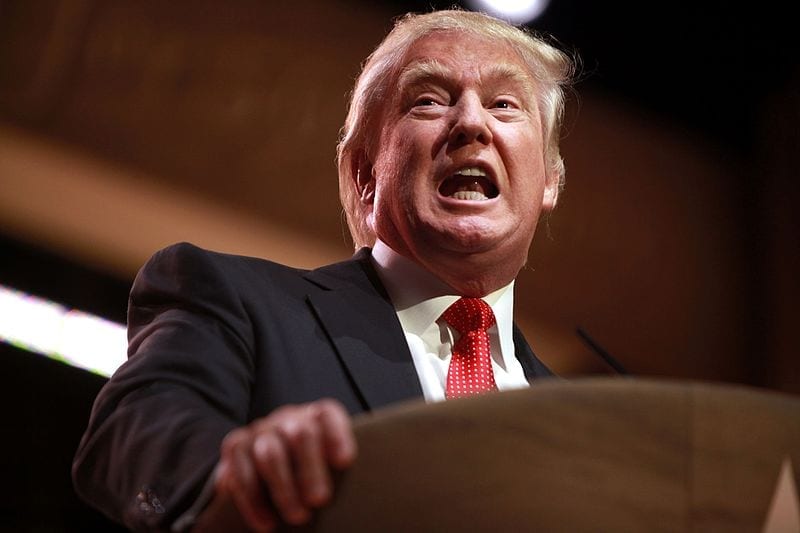Numerous administration officials have said they want temporary immigration restrictions to extend for weeks, months, or years after coronavirus is contained.
The Trump administration is poised to enact an immigration crackdown under the pretense of controlling novel coronavirus.
The Wall Street Journal reports that the White House is abuzz with rumors of impending reform. Anonymous officials with knowledge of the president’s plans say that Trump, along with his senior advisers, are hoping the pandemic may present an opportunity to finally put some of the commander-in-chief’s long-shelved policies in place.
They’re operating under the belief, it seems, that the American public will be unusually receptive to immigration restrictions amidst the ongoing coronavirus outbreak.
But the Trump administration isn’t just going after undocumented immigrants: it’s considering restricting or outright suspend certain classes of temporary, work-based visas. Trump’s advisers are purportedly collaborating on an executive order that would focus on H-1B and H-2 visa classifications. It may also target student visas, which often come with short-term work authorizations.
The executive order, if put into effect, would act as a sort of follow-up to an April mandate which prevents new immigrants from entering the United States for at least 60 days. That executive order adds the Wall Street Journal, prohibits even the entrance of U.S. citizens’ family members.

While all of the administration’s measures are supposed to be temporary, they could be extended or expanded—possibly for years, depending on whether President Trump retains the White House in November.
One Department of Homeland Security official told the WSJ that some government officials want visa restrictions to last at least until a coronavirus vaccine can be developed.
“If we are taking actions on immigration that help improve public health, help improve the economy, help improve jobs, it’s a vindication or validation that the president was right since day one,” the official said.
And the administration’s calculus appears well-timed: polling shown that, although most Americans aren’t anti-immigration, a majority want foreign entries into the U.S. curbed until coronavirus can be controlled.
Arkansas Sen. Tom Cotton—referred to by the Journal as an “immigration hard-liner”—has been pressing the president to ensure immigration prohibitions are left in place for as long as they possibly can.
“I think circumstances may call for permanency or effective permanency in the months and years ahead,” Cotton said.
Cotton, along with other congressional conservatives, wants to see guest-worker visas suspended for at least a year, “or until unemployment has returned to normal levels.”
CNN suggests that that right-wing attempts to limit immigration are an extension of long-term plans to do the same. White House senior policy adviser Stephen Miller, for instance—well-known as the architect of some of Washington’s most heinous immigration policies, including family separations at the U.S.-Mexico border—has a history of using illness as an excuse to petition for immigration cuts.
Miller, says CNN, previously tried to use highly localized influenza and mumps outbreaks to close America’s borders.
Nevertheless, some administration officials insist that any big changes in the coming month are strictly related to public health—and have nothing to do with Trump’s particularly cynical brand of politics.
Acting Customs and Border Protection Commissioner Mark Morgan, for example, told CNN that his agency has been using public health guidance to rapidly deport migrants apprehended along the southern border.
But Morgan says the CBP’s activity is related to public health, and not immigration enforcement. Yet he, too, hopes to see immigration restrictions stay in place—even after the United States begins returning to normalcy.
“From a public health perspective, it has been determined that still is a risk from our borders,” Morgan said, pointing to coronavirus’s spread in Mexico.
Sources
Inside the campaign to cut immigration to the United States amid the coronavirus pandemic
Trump Administration Pushes to Extend Coronavirus Immigration Limits


Join the conversation!